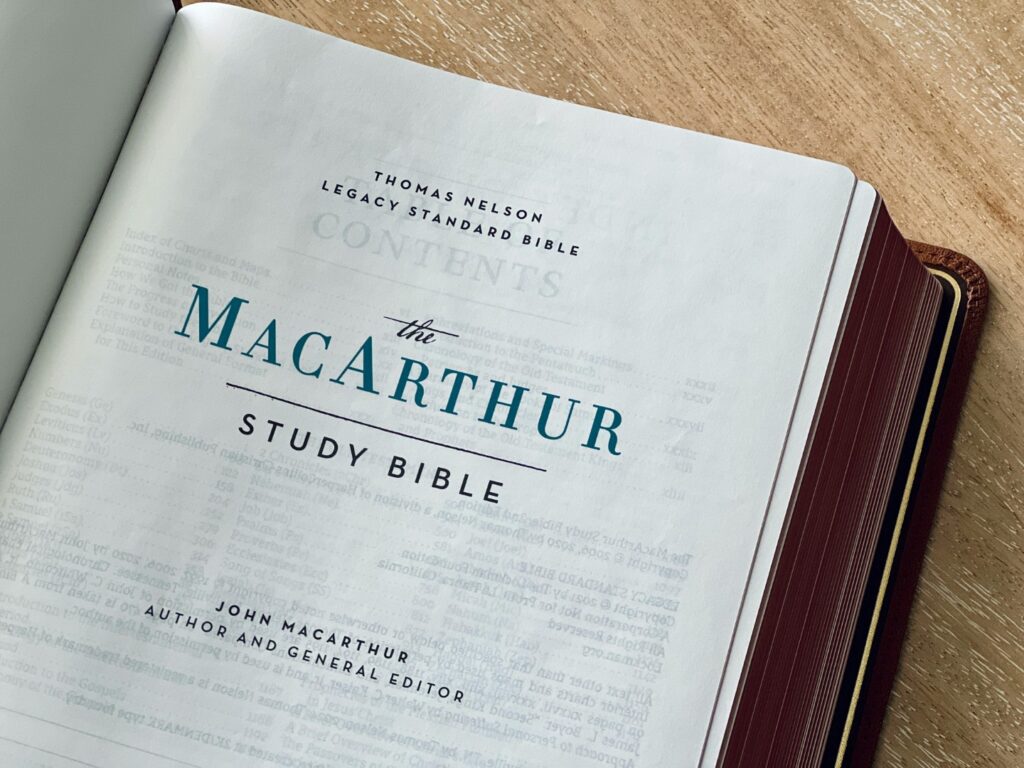

 by Michael R. Burgos, ThM, PhD, ACBC Certified Biblical Counselor
by Michael R. Burgos, ThM, PhD, ACBC Certified Biblical Counselor
The home is the proving ground for eldership. If a man does not manage his household well, he is ill-suited to lead the church (1 Tim. 3:4-5). Whereas Christ is Chief Shephard and local church elders are under-shepherds, husbands serve as the under-shepherds of their wives and children (Eph. 5:22-25). A husband’s leadership should demonstrate the kind of care, provision, and oversight one would expect of an elder in the local church. Indeed, if a husband "does not provide for his relatives, and especially for members of his household, he has denied the faith and is worse than an unbeliever" (1 Tim. 5:8, ESV). The verb translated as "manage" (pronoeō) implies that Paul envisions a level of support that exceeds mere financial or material provision. The verb is derived from the preposition pro ("before") and the noun nous ("mind") and typically connotes careful planning and preparation beforehand. Husbands must persistently plan, prepare, and meet their families' spiritual and material needs.
When helping husbands fulfill their calling, biblical counselors depend on worthwhile homework assignments that are achievable and require real-life change. Below are three assignments I’ve used to good effect:
Daily Husband-Wife Devotions
Morning devotions reorient a couple’s approach to the day, reminding us of our dependence on Christ and His gospel. A typical morning devotion should involve a brief meditation and prayer of fifteen to thirty minutes. There are many high-quality devotional books that follow the calendar year, such as Paul David Tripp’s New Morning Mercies or C. H. Spurgeon’s Morning and Evening. These volumes are well-suited for couples and provide material to reflect on throughout the day. I usually assign a devotional pattern that includes the following components:
 Devotions are first.
Devotions are first.
This may involve waking up earlier, preparing the night before, or modifying the current morning schedule, especially if you have young children. Modifying our schedules for the sake of communion with God is a worthwhile investment that demonstrates good priorities.
Devotions occur six days a week.
Setting aside occasional circumstances that make morning devotions impossible, morning devotions should occur at least six times a week.
Dedicate the same space for devotions.
Families are usually busy in the mornings. In order to protect your devotional time, choose a space that you will dedicate for daily devotions. Keep your devotional materials in that space so they are easy to find. When children see you in that space each morning, they will eventually understand that when their parents are together in that space, that time is set apart for the Lord.
The couple mutually participates.
If the husband reads the selection, then the wife should lead in prayer. Conversely, if the wife reads the selection, her husband should lead the prayer.
Reflect on the reading.
Briefly discuss the reading and evaluate how the passage relates to life.
Keep prayer notes.
Keeping a small journal that notes the date and a brief list of items prayed for will serve as a monument to God’s faithfulness.
Developing Biblical Convictions Through Careful Study
Devoting time for personal Bible study is an absolute necessity for husbands. While developing an in-depth Bible study habit requires a substantial investment of time, few investments provide as powerful a transformational effect on the family. I suggest a homework assignment that involves the following components:
Select a book.
Choose a book of the Bible in which you will live for the next year. Commit yourself to the book and devote yourself to becoming intimately familiar with its contents.
Choose a Bible.
Pick a study Bible that contains extensive explanatory footnotes, cross-references, and doctrinal-oriented articles. The ESV Study Bible or NASB Grace and Truth Study Bible are excellent options.
 Determine a commentary.
Determine a commentary.
Select an expository or semi-technical commentary that goes into significant detail on each verse: commentaries that include worthwhile introductory sections wherein the book's authorship, setting, and literary features are ideal. Choose a commentary whose author shares your evangelical theological commitments. I recommend the Reformed Expository Commentary series or the Tyndale Commentary series.
Devote your time.
The common belief that serious Bible study requires hours upon hours of uninterrupted study time is misguided. Take a pericope consisting of a paragraph and read it. Find a podcast to listen to on the way to work that either provides a sermon or discusses the passage. If you have a job that allows you to listen to something while you work, listen repeatedly to that book. Most Bible study apps include an audio version of the Scriptures. At lunch, reread the passage and again when you have free time. In the evening, open your Bible and commentary on the dining room table and devote forty-five minutes to an hour to careful analysis. Allow your children this opportunity to see you study God’s Word. I commonly assign this kind of study to be undertaken during the week, reserving Saturdays for family time and the Lord’s Day for worship.
Engage in critical study.
Studying the Bible critically does not entail judgmental criticism of God’s Word. Instead, by "critical," I mean read the text inductively. Ask questions about the passage. Follow the author’s argument. Read the cross references. If the text is a narrative, ask yourself why the author included the account. If it is another genre, seek to understand the significance of the passage to the whole.
Read the commentaries.
Following your initial critical study, examine what the commentators say. These writers may provide a new perspective or some worthwhile insight. Do not merely accept those but test with the Bible text what they have written.
D on’t move forward until you understand.
on’t move forward until you understand.
It is only when you have grasped the meaning of the passage and its essential function in its broader context that you move on to the following passage.
Document your findings.
Use a notebook to write down your commentary or to record your reflections on the text. Your notations will be helpful when you revisit the passage or have the opportunity to teach the text to your family or another venue.
Develop convictions.
You have investigated the passage, and now you know its meaning. Consider its doctrinal implications. Does the text forbid some behavior? Does it commend an attitude or practice? Does the passage illustrate something? Develop a conviction for your life, according to the text. Such convictions depend on the authority of God’s Word and, therefore, must be held firmly.
Practice your conviction.
Do not merely be a hearer of the Word (James 1:22-25). Live by what you know to be true, and do not allow anyone to dissuade you from what you have found in God’s Word. Living according to biblical convictions is essential to home eldership. While you may encounter mockery or hostility, hold fast to the Scriptures with a clear conscience and trust that the Lord will bless your commitment to Him.
Family Worship
Family worship involves a daily time of praise, teaching, and prayer. Daily family worship serves to catechize children and allows fathers to share the fruit of the study with their families. The following summarizes my usual family worship homework:
Set aside a time.
Family worship can occur at any time when the entire family is present. I suggest conducting worship during dinner time or shortly thereafter.
Husbands/fathers should lead.
Husbands should prepare for and lead the family worship time.
Choose a teaching structure and method.
Family worship does need to take an hour. Choose a biblical passage you would like to read and expand upon or a doctrinal resource, such as a catechism, to discuss together. I recommend the New City Catechism or, for families with young children, the Catechism for Boys and Girls.
Discuss.
Conclude your teaching with a brief discussion wherein your wife and children may provide their reflections, ask questions, or otherwise comment. Over time, the conversations will afford you the opportunity to monitor your family’s spiritual progress.
Sing.
Choose a familiar hymn or worship song. If you are not musically inclined, invite the most musically willing of your family to lead. Join your voices together and praise the Lord.
Pray.
Ask each family member to share their brief prayer requests and join your hearts in prayer. Utilizing a prayer book, such as The Valley of Vision or Piercing Heaven, may serve the family well if there are no pressing prayer needs.
by Michael R. Burgos, ThM, PhD, ACBC Certified Biblical Counselor
____________________________________
![]() Have comments or questions about this article - either directly for FSM or the author? Use our contact form to submit any input confidentially:
Have comments or questions about this article - either directly for FSM or the author? Use our contact form to submit any input confidentially:
____________________________________
If you are Veterans or a friend/family member of a Veteran and would like request our counseling, please use the link below:
If you are a counselor and would like to join our network, please use the link below:
Join the FSM Biblical Counselor Network
If you like what you've read , sign up to receive quarterly newsletter articles and updates via email - or SUPPORT our mission by making a donation, even $10 per month can make a huge difference and allow us to grow our counseling and spread the word of God!
Donate Now - One-Time or Recurring Monthly Donations!

If you are a Federal Employee and would like to donate FSM
is a certified Combined Federal Campaign (CFC) charity.
Designate ID #59846 / Fallen Soldiers Ministries.
_____________________________________________









